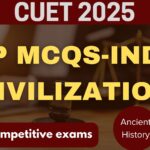Theories of Corporate Personalities
Corporate personality refers to the legal recognition of a corporation as a separate legal entity distinct from its members. Various theories explain the nature and status of corporate personality. Here are the major theories:
Theories of Corporate Personalities
- Purpose Theory
- Fiction Theory
- Bracket Theory
- Realist Theory
- Contratual Theory
- Aggregate Theory
(i) Purpose Theories of Corporate Personalities
Purpose Theory of Corporate Personality
Propounded by: Brinz, Bekker
Also Known As: Zweckvermögen Theory (German term for “purpose fund”)
Core Idea:
The Purpose Theory suggests that a corporation is not a person but merely a legal fund or entity created for a specific purpose. Unlike the Fiction Theory, which treats corporations as artificial persons, the Purpose Theory sees them as assets or rights grouped together to fulfill a defined objective.
Key Features of Purpose Theory of corporate personalities:
Corporations Exist to Serve a Purpose
- A company or organization exists not as a “person” but as a legal mechanism to achieve a particular goal.
- Example: A charitable trust exists to help society, not as a separate “person.”
No Real or Fictional Personality
- Unlike Realist Theory (which treats corporations as “living entities”), Purpose Theory argues that only human beings can have personality.
- Corporations are just a pool of assets directed towards a purpose.
Trust-Based Approach
- Similar to a trust, a corporation is an entity where assets and rights are managed for a defined objective rather than being a “person” in itself.
- Example: A university endowment fund exists for education, not as a separate personality.
Example Applications of Purpose Theory:
Charitable Trusts & Foundations
- Institutions like Tata Trusts (India), Bill & Melinda Gates Foundation, or religious organizations exist only for their purpose (charity, education, religion).
Endowment Funds & Waqfs (Islamic Trusts)
- A waqf in Islamic law is a religious endowment created for a specific purpose like education or social welfare. The waqf itself has no personality but is a “legal fund.”
Corporations with Social Purposes
- Some corporate structures (like NGOs, public charities, and public-sector enterprises) are created to serve a mission, not just profits.
Criticism of Purpose Theory:
- Limited Scope – Many corporations function like independent persons, not just “funds for a purpose.”
- Does Not Explain Business Corporations – Large companies like Apple, Tata, or Reliance exist for profit-making but also have multiple other activities, making it hard to define them under this theory.
- Modern Corporate Law Treats Companies as Separate Persons – Courts and laws grant corporations rights similar to individuals (e.g., owning property, entering contracts, and suing others).
(ii) Fiction Theory of Corporate Personalities
Propounded by: Friedrich Carl von Savigny, Salmond
Core Idea:
The Fiction Theory states that a corporation is not a real person but a legal fiction created by law. Unlike a natural person, a company exists only because the state grants it legal personality.
This means:
- A corporation is artificial and exists only in the eyes of the law.
- It cannot act on its own and must function through human agents (directors, employees, etc.).
- The state has the power to create, modify, or dissolve corporations.
Key Features of Fiction Theory of corporate personalities:
Corporation is an Artificial Person:
- A company cannot think or act like a human; it operates through its members and officers.
- Example: Tata Motors Ltd. itself cannot sign documents—its directors or managers do it on its behalf.
State-Given Personality:
- A corporation does not have natural existence; it gets its identity from company laws.
- Example: A company in India must be registered under the Companies Act, 2013 to get legal recognition.
Limited Liability & Separate Legal Identity:
- Because a corporation is a fictional entity, its shareholders are not personally liable for its debts.
- Example: In Salomon v. Salomon (1897), the court ruled that a company is separate from its owner, protecting his personal assets.
Dissolution by Law:
- Since the state creates a company, it can also dissolve it through legal procedures (like liquidation).
- Example: If a company commits fraud, the government can cancel its registration.
Examples of Fiction Theory in Action:
1. Company as a Legal Person
- A corporation can own property, sue, and be sued like a person.
- Example: State Trading Corporation of India v. Commercial Tax Officer (1963) – The Supreme Court held that corporations are not citizens but have legal rights.
2. Government-Controlled Corporations
- Public sector enterprises (e.g., LIC, ONGC) are treated as separate legal entities but exist because of state legislation.
3. Contractual and Property Rights
- A company can enter contracts and own assets, even though it is just a legal fiction.
Criticism of Fiction Theory:
Does Not Reflect Economic Reality
- Many corporations function as independent businesses, not just legal fictions.
- Example: Companies like Google and Reliance make decisions like a real person.
Ignores the Role of Employees & Shareholders
- Corporations have real stakeholders, like employees, investors, and customers, but this theory focuses only on legal recognition.
Contradicts the Realist Theory
- Realist Theory argues that corporations have real existence in society, while Fiction Theory says they are merely legal constructs.
(iii) Bracket Theory (Symbolic Theory) of Corporate Personalities
Propounded by: Rudolf von Ihering
Core Idea:
The Bracket Theory, also known as the Symbolic Theory, suggests that a corporation is just a symbol or a bracket to represent a group of people working together. The legal personality of a corporation is a convenient legal fiction that can be ignored whenever necessary.
Key Features of Bracket Theory of corporate personalities:
Corporation is Only a Name, Not a Real Person
- Unlike the Realist Theory, which treats corporations as real entities, Bracket Theory sees them as just a label for a group of people.
- Example: A law firm (LLP) is not a “person”—it is just a name under which multiple lawyers operate.
Courts Can Ignore Corporate Personality
- If a corporation is used for fraud, tax evasion, or illegal activities, courts can bracket out (ignore) the company and hold real people behind it responsible.
- Example: Piercing the Corporate Veil in fraud cases.
Focus on Members, Not the Corporation
- The owners, directors, and employees are the real actors behind the company, not the company itself.
- Example: If a company fails to pay salaries, the court may look at the owners’ liability instead of treating the company as a separate entity.
Criticism of Bracket Theory:
Ignores Corporate Independence
- Modern corporations function independently from their owners, so treating them as just a symbol is unrealistic.
Not Practical for Large Companies
- For big corporations like Apple, Google, or Tata, it is impossible to treat them as just a “bracket” because they have real economic influence.
Uncertain Legal Application
- Courts use Bracket Theory only in special cases (e.g., fraud, tax evasion), but not in regular business operations.
Realist Theory (Organic Theory) of Corporate Personality:
Propounded by: Otto von Gierke & Frederic Maitland
Core Idea:
The Realist Theory (also called the Organic Theory) argues that a corporation is a real, living entity, just like a natural person. Unlike the Fiction Theory, which says corporations exist only because of the law, this theory believes corporations have a real existence in society, independent of the state.
Key Features of Realist Theory of corporate personalities:
Corporation is a Real Social Organism
- A corporation is not just a legal fiction but an actual entity that functions like a real person in society.
- Example: Tata Group, Google, or Reliance Industries exist as powerful organizations beyond just legal documents.
Independent Existence
- A corporation exists before and beyond its members. Even if all shareholders change, the company continues to exist.
- Example: IBM was founded in 1911, and even though all original members are gone, the company still operates.
Corporations Have Their Own Will
- Just like a nation or community, corporations have their own goals, values, and decision-making systems.
- Example: Apple follows a vision of innovation, regardless of who is the CEO.
Corporations Have Rights & Duties Like Humans
- A company can sue and be sued, own property, pay taxes, and enter into contracts.
- Example: In India, under the Companies Act, 2013, corporations are given legal rights just like natural persons.
Examples of Realist Theory in Law:
Recognition of Corporate Personality
- In Trustees of Dartmouth College v. Woodward (1819), the US Supreme Court ruled that corporations have rights like individuals.
2. Perpetual Succession
- A company continues to exist even if its members die or leave.
- Example: Infosys, founded in 1981, continues to operate even after leadership changes.
3. Criminal & Civil Liability of Corporations
- Companies can be punished for crimes (corporate manslaughter, fraud, environmental violations).
- Example: Union Carbide (Bhopal Gas Tragedy case) was held liable for industrial negligence.
(v) Contractual Theory of Corporate Personalities
The Contractual Theory of corporate personality states that a corporation is a result of a contract between individuals who come together to pursue a common business goal. It does not exist independently like a natural person but is merely a set of contractual relationships between shareholders, directors, employees, and other stakeholders.
- The Contractual Theory states that a corporation is nothing more than a contractual association between individuals who come together for a common economic purpose.
- corporations exist because individuals agree to form them through contracts.
- Corporations Are Created by Agreements.
- Corporations Exist for the Benefit of Stakeholders.
- Corporations Are Private, Not Public Institutions.
- Ignores Separate entity concept, example: Joint venture & Partnership firms.
Aggregate Theory of Corporate Personalities:
Propounded by: Various jurists, including John Marshall and Justice Field
Core Idea:
The Aggregate Theory states that a corporation is nothing more than a collection (aggregate) of individuals who make up the company. Unlike the Realist Theory, which treats corporations as real entities, the Aggregate Theory argues that corporations do not have a separate existence apart from their members.
Key Features of Aggregate Theory of corporate personalities:
- Corporation is Just a Sum of Its Members
- A company has no real existence apart from its shareholders, directors, and employees.
- Example: A law firm (partnership) exists because its lawyers work together, not because it has an independent personality.
2. No Separate Legal Personality
- Unlike the Fiction Theory, which sees corporations as legal creations, the Aggregate Theory rejects this idea.
- Example: In partnerships, all partners are personally responsible because the firm is just a name for their collective efforts.
3. Corporate Personality Exists Only for Convenience
- The law recognizes companies as separate legal entities only for practical reasons, but in reality, they remain an association of individuals.
- Example: If all shareholders of a private company dissolve their agreement, the company ceases to exist.
4. Focus on Individual Rights & Responsibilities
- The owners and managers are the real decision-makers, not the corporation itself.
- Example: If a company commits fraud, its directors and officers should be held responsible, not just the corporation.
Criticism of Aggregate Theory:
- Does Not Explain Perpetual Existence – A company continues to exist even if its members change, which contradicts the idea that it is just a collection of individuals.
- Modern Companies Have Separate Legal Personality – Today, laws recognize corporations as separate entities with rights, liabilities, and independent functioning.
- Does Not Apply to Large Corporations – Companies like Apple, Tata, or Microsoft are more than just groups of individuals; they function as independent institutions.
You May Also Like:
Legal Right in Jurisprudence, 40 kinds of legal rights
Custom as a source of law | Historical Theory | Analytical Theory
Define ownership in jurisprudence. Various Jurists on ownership!
Definition of Legislation given by different jurists
Nature, Scope, Importance of Jurisprudence
Definition of Jurisprudence by various jurists
Relationship between Law and Morals
Difference between Austin and Kelson
Realist Movement of Jurisprudence
Jurisprudence is lawyers’ extraversion
Short note on ‘Manu’ : Jurisprudence
Short Note on Jeremy Bentham: Jurisprudence


















Leave a Reply